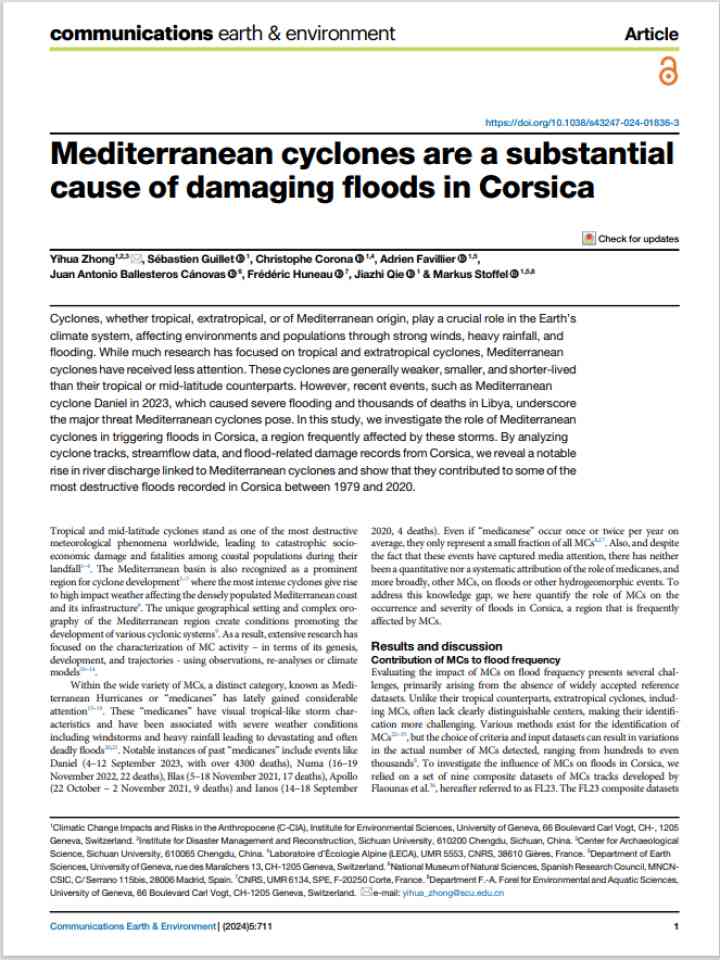Mediterranean cyclones are a substantial cause of damaging floods in Corsica
This study examines the role of Mediterranean cyclones in triggering floods in Corsica, a region frequently affected by these storms. Cyclones, whether tropical, extratropical, or of Mediterranean origin, play a crucial role in the Earth's climate system, affecting environments and populations through strong winds, heavy rainfall, and flooding. Much research has focused on tropical and extratropical cyclones, Mediterranean cyclones have received less attention. These cyclones are generally weaker, smaller, and shorter-lived than their tropical or mid-latitude counterparts. However, recent events underscore the major threat Mediterranean cyclones pose, such as Mediterranean cyclone Daniel in 2023, which caused severe flooding and thousands of deaths in Libya.
This study represents the first comprehensive attempt to quantify the influence of Mediterranean Cyclones (MCs) on natural hazards, particularly floods, in of the Mediterranean basin's most cyclone-prone regions. Findings demonstrate that MCs have indeed had a substantial effect on high river discharges. They can also be considered one of the primary drivers of the most devastating floods during the period for which data is available. By analyzing cyclone tracks, streamflow data, and flood-related damage records from Corsica, this study reveals a notable rise in river discharge linked to Mediterranean cyclones and show that they contributed to some of the most destructive floods recorded in Corsica between 1979 and 2020. There is an imperative for a comprehensive evaluation of the impacts of MCs on flood frequency and other hydrogeomorphic hazards. This assessment should therefore be extended beyond Corsica in a next step and encompass a broader geographical scope.
Explore further
